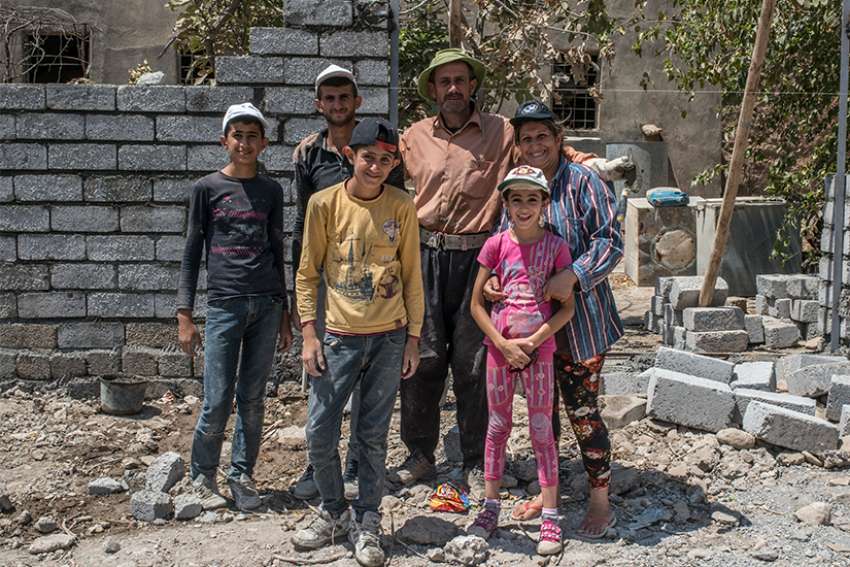Hétu is Canada’s national director for the Catholic Near East Welfare Association. It’s an organization created by Pope Pius XI in 1926 to carry out a range of works from priestly formation in Egypt to humanitarian relief in Ukraine to alleviating poverty in India.
Increasingly, he says, its work in the Middle East has been almost exclusively about getting first responder level emergency aid to afflicted populations.
“Previously, our work was more about improving the quality of life for people, or helping the Church to be able to carry out its ministries and provide social services,” said Hétu. “Now, we’re moving a lot more towards life-saving intervention. It’s not just improving people’s lives. It’s about survival.”
He quotes CNEWA figures showing 2.5 million to three million Christians have been “rooted out of their homes in the Middle East in the past 15 years.” In Syria, a million Christians have fled the country in the last seven years. Another 500,000 have been directly affected by the war. Another million have left Iraq.
“At a certain point, you begin to ask ‘how many can be left?’ Right now, in Iraq, it’s very shaky. And Syria? Forget it. It’s pure emergency mode.”
Compounding the sense of the region being cleansed of its Christian population is the difficulty of counting refugees in countries such as Jordan, Lebanon and Turkey. Some have not registered as refugees with the UN. Others are stuck in places where they must try their utmost to meld into the local landscape without attracting hostile, deadly, attention.
In such circumstances, building or refurbishing churches takes a decided second place to providing basic survival kits and helping children get minimal education.
In a place like Gaza, even before the latest violence began, only faith in Christ keeps hope alive. And much of that hope is to get out alive, and seek a new life elsewhere.
“There are only 1,000 Christians left, 103 Catholics. And every year, we lose 50 Christians. When they get their permits to get out of Gaza to celebrate Christmas (in Bethlehem), they don’t come back. They find families in Canada or Europe or Australia or Latin America and hope they’ll be able to get citizenship there.”
Hétu traces the eviction of Middle Eastern Christians in part to the sheer physical violence in the countries where they’ve been driven from their homes. But there is another aspect that bodes even worse. It’s the deepening of ideologically motivated hatred for the followers of Christ.
“History has taught us that each time fanatics take control of a country, the first victims are the Christians. They are the ones attacked. They may have been protected under a previous dictatorship, but once there’s a change of leadership, they are attacked. They are seen as (an ideological) threat because the message of Christians is a message of love, passion, sacrifice and self-giving, forgiveness, freedom.”
Hétu can’t help wondering how deeply that anti-Christian ideology has seeped into Canadian soil. He was in the House of Commons March 19 when the Liberals and New Democrats all but unanimously voted down a Conservative Opposition motion on the Canada Summer Jobs “values” attestation. He watched in shock as Liberal MPs he knows well voted to oblige faith-based organizations to support abortion in return for summer employment funding. By extension, he says, those MPs voted against Charter-protected guarantees of religious freedom.
It was all very peaceful. No one was forced to physically flee to safety. Canada is still a democracy with a Charter of Rights and Freedoms. Yet the ideological ground shift seemed eerily similar to what CNEWA has witnessed in far more violent locales, Hétu says.
“It’s very simple to make a connection with what’s happening overseas. If no one here cares about what happens to Christians in the Middle East, why should they care about what happens to Christians here? But if they die, we’re next. We’re global Christians. We’re following the same path. We have to wake up. Now.”
(Stockland is publisher of Convivium.ca and a senior fellow with Cardus.)


